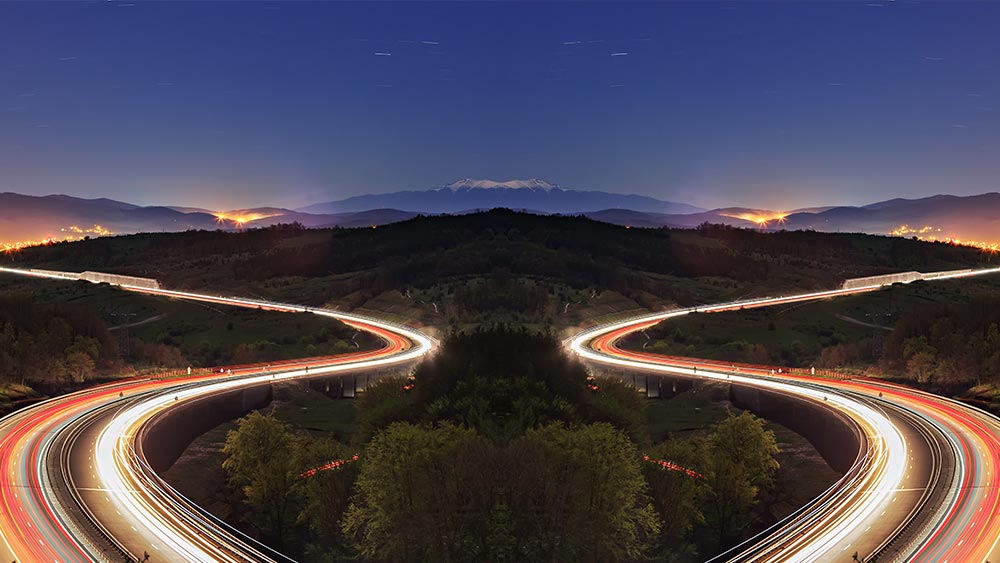| |
| |
| |
| Presented By Energy for Progress |
| |
| Generate |
| By Ben Geman ·Mar 17, 2021 |
| Good morning. Today's Smart Brevity count is 1,199 words, 4.5 minutes. 🚨 "Top Indian government officials are debating whether to set a goal to zero out its greenhouse gas emissions by mid-century, an ambitious target that would require overhauling its coal-dependent economy." (Bloomberg) 🎶 And today marks the 1973 U.S. release of Pink Floyd's "Dark Side of the Moon," which provides today's ethereal intro tune... |
| |
| |
| 1 big thing: Oil's post-pandemic global future |
 Global oil demand is slated to rise above pre-pandemic levels over the next few years but nonetheless remain lower than it would have been absent COVID-19's emergence, a new International Energy Agency analysis projects. Why it matters: The pandemic is certainly having a lasting effect — its mid-decade demand estimate is 2.5 mbd million barrels per day lower than the growth level expected before the crisis. - Global gasoline consumption will probably never reach pre-pandemic levels.
- Yet IEA's estimate also shows that oil demand will still reach fresh records, a sign that nations have not yet responded to the pandemic with the kinds of clean energy policies that IEA and others had hoped.
What they're saying: "For the world's oil demand to peak anytime soon, significant action is needed immediately to improve fuel efficiency standards, boost electric vehicle sales and curb oil use in the power sector," IEA head Fatih Birol said. What we're watching: The report lays out a basket of policies that could alter the underlying trajectory. - That means the ones Birol name-checked above, alongside more telework and less business travel, and more recycling that lessens oil growth in the petrochemical sector.
- All that together could displace 5.6 million barrels per day by 2026, "which would mean that oil demand never gets back to pre-crisis levels."
The big picture: The report compares the mid-decade forecasts to the global oil consumption path that would be consistent with the Paris climate agreement. - The "base case" sees demand 3.5 million barrels per day higher in 2025 than 2019's levels.
- But under IEA's Paris-aligned "sustainable development scenario," oil demand would need to decline by 3 million barrels per day over the stretch.
Of note: All the demand growth they project through the mid-2020s comes from non-OECD nations, with demand in Asia rising strongly. - On the production side, IEA sees several forces combining to limit the U.S. bounce-back from last year's declines, with only "modest growth" expected over the next half-decade.
- There's less cheap capital available, industry investment is more conservative, climate pressures are greater and new Biden administration regulations are expected.
- "The slowdown in US production growth clears the way for OPEC+ to fill much of the supply gap as it taps into its spare capacity," IEA notes.
* * * Speaking of oil, the Financial Times summarizes IEA's separate monthly report out this morning: "The expectation of Wall Street banks that oil has entered a new and sustained period of dramatic price rises is misguided, said the [IEA] on Wednesday." |
    |
| |
| |
| 2. Telework barely dents oil consumption |
 IEA's new multiyear oil outlook estimates that working from home isn't widespread or sticky enough globally to have much lasting effect on oil consumption absent much stronger pro-telework policies. Why it matters: COVID-19 prompted speculation (from yours truly and others) about whether behavioral changes happening for tragic reasons might have long-term effects on various kinds of energy demand. - So the new IEA analysis essentially suggests that when it comes to one of those big changes, which is commuting or lack thereof, the answer is a qualified "no."
- They estimate that remote work is expected to keep displacing about 250,000 barrels per day of oil in the mid-2020s, which is pretty small relative to the total global oil market.
Yes, but: Stronger government telework incentives can be one part of a suite of policies that together make a real dent in oil consumption, IEA said. "In a scenario where workers in the OECD and largest non-OECD countries work from home three and two days a week, respectively, consumption would be around 900 kb/d lower in 2026 compared to our base case," IEA said. |
    |
| |
| |
| 3. Cleaning pollution the synthetic biology way |
 |
|
| A utility barge on an oil sands tailing pond in Fort McMurray, Alberta. Photo: Orjan F. Ellingvag/ Dagens Naringsliv/Corbis via Getty Images |
| |
| Axios' Bryan Walsh reports...A startup that uses synthetic biology to clean up pollution is taking on a $20 million funding round. Why it matters: Bioremediation offers the possibility of cleaning some of the world's most contaminated sites using the power of nature — with a little human engineering. Synthetic biology-influenced bioremediation could be particularly useful for the kind of concentrated, hard-to-treat waste created during mining and energy projects, including Canada's oil sands developments. Driving the news: Allonnia, a startup spun off from the synthetic biology leader Ginkgo Bioworks, will be announcing today a $20 million investment from the cleantech fund Evok Innovations. - As part of the investment — which brings Allonnia's total financing to $60 million since its founding last October — Allonnia will acquire the assets of Metabolik Technologies, an Evok portfolio company that uses bioremediation on pollutants created during the development of oil sands.
How it works: Bioremediation involves harnessing naturally occurring microbes to break down difficult-to-treat pollutants in the environment. - Allonnia works to identify microbes capable of breaking down waste, then uses the tools of synthetic biology to amplify their abilities both to clean up toxic pollution and bind to valuable materials in the waste stream for reuse.
- "If designed properly, these microbes will have an affinity towards the contaminants and metabolize them as part of their system," said Allonnia CEO Nicole Richards.
Go deeper: The age of engineering life begins |
    |
| |
| |
| A message from Energy for Progress |
| Meeting energy needs and tackling climate change isn't either/or |
| |
 |
| |
| We have to do both. Innovative partnerships and technology drive solutions for energy customers, our economy and our environment. Let's make even more progress together. |
| |
| |
| 4. Fresh fallout from the Texas power crisis |
| People: "The last Texas regulator on the Public Utility Commission at the time of the deadly February blackouts has resigned, Gov. Greg Abbott announced Tuesday." (Associated Press) Companies: "Brilliant Energy LLC became the latest power retailer caught up in the Texas electricity crisis to file for bankruptcy, aiming to wind down the business after it ran up lofty bills to the grid operator during last month's winter freeze." (Wall Street Journal) |
    |
| |
| |
| 5. Groups urge FTC to probe Chevron ad claims |
| Environmental groups have filed a complaint with the Federal Trade Commission alleging Chevron's ads mislead consumers by painting an inaccurate picture of the oil giant's clean energy activities. Why it matters: The groups — Greenpeace, Earthworks and Global Witness — say it's the first such climate complaint filed against an oil company under the FTC's "Green Guides." Driving the news: The filing alleges Chevron's ad and marketing suggest its clean energy efforts are a significant proportion of its overall business. - Yet fossil fuels remain the dominant business lines for Chevron and other oil majors despite growing investments in areas like renewables, EV charging and carbon capture.
- Julieta Biegner of Global Witness said Chevron is wooing consumers who care about the climate and racial justice while "doubling down on climate-wrecking fossil fuels that pollute our communities."
- It asks the FTC to force Chevron to remove disputed ads and circulate "corrective" statements.
The other side: Chevron called the allegations "frivolous" and said, "we engage in honest conversations about the energy transition." "We believe the future of energy is lower carbon and are working to help the world achieve that goal," Chevron said. What we're watching: The outcome of this case — and other potential FTC filings. - Dan Jaffe of the Association of National Advertisers said similar complaints about corporate climate ads could be in the offing.
- That's because of the high priority the Biden administration has placed on the topic and "all the issues that may flow from that and any advertising that may impact that," he said.
Go deeper: Chevron 'Greenwashing' Targeted in Complaint Filed With FTC (Bloomberg) |
    |
| |
| |
| 6. Number of the day: $10 million-plus |
| That's the cost of a new media campaign from environmental groups calling for major clean energy and climate provisions in a large infrastructure package. Why it matters: That's a large buy and shows how Capitol Hill infrastructure legislation is becoming a major activist focus. - Climate Power and the League of Conservation Voters launched the "Great American Build" campaign that begins with this ad.
- It's backed by several Democratic governors, unions and others. NBC News has more.
|
    |
| |
| |
| A message from Energy for Progress |
| What can be achieved by working together on cleaner energy |
| |
 |
| |
| Americans don't have to choose between reducing CO2 and keeping America powered. The reason: Reliable energy and innovative climate solutions are powering progress, so that it's possible to do both. Learn how we're doing more together. |
| |






No comments:
Post a Comment